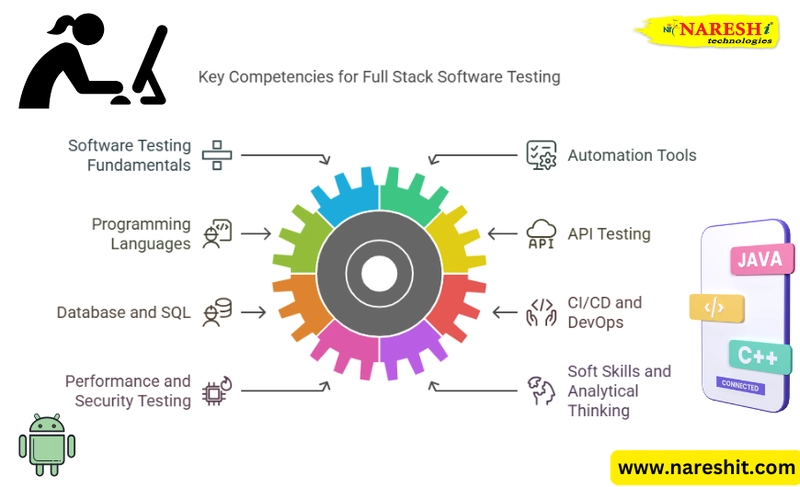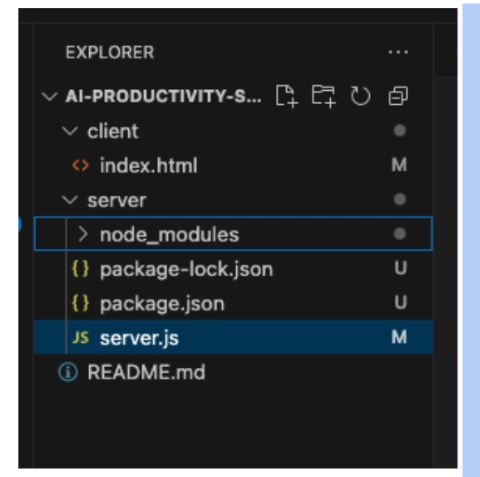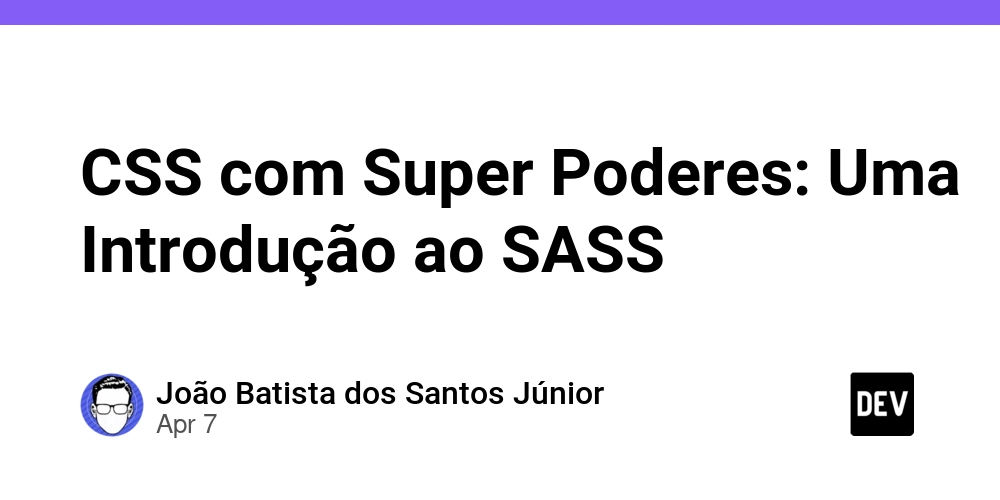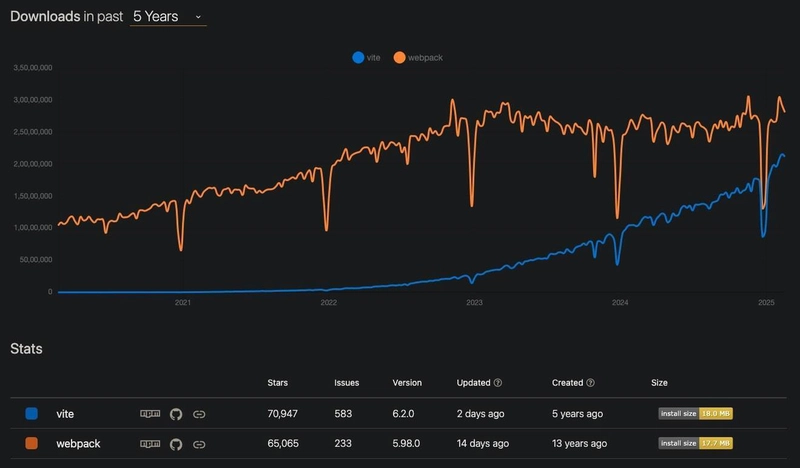Essential Skills You Need to Become a Full Stack Software Tester
Introduction The demand for Full Stack Software Testing Training in KPHB is increasing as businesses require professionals who can handle both front-end and back-end testing. A full-stack tester is responsible for ensuring software applications run smoothly across multiple layers of the technology stack, including UI, databases, APIs, and security. If you’re considering a career in full-stack software testing, here are the critical skills you need to master. 1. Understanding of Software Testing Fundamentals Before diving into full-stack testing, you must have a solid grasp of core testing concepts such as: Manual and Automated Testing Functional and Non-functional Testing Test Case Design Bug Reporting and Tracking A strong foundation in these principles will help you conduct effective testing across the stack. 2. Proficiency in Automation Tools Automation is essential in modern software testing. Full-stack testers should be comfortable using tools such as: Selenium (for UI testing) JMeter (for performance testing) Postman (for API testing) Appium (for mobile application testing) These tools help automate repetitive test cases, saving time and improving efficiency. 3. Knowledge of Programming Languages Full-stack testers must be familiar with at least one programming language. The most commonly used languages in test automation include: Python Java JavaScript Understanding coding concepts helps in writing test scripts, debugging issues, and collaborating with developers. 4. API Testing Expertise APIs act as the bridge between the front-end and back-end. To ensure seamless functionality, testers should: Validate API responses (status codes, response body, headers) Perform security testing for APIs Automate API testing using Postman or RestAssured API testing is a crucial skill that allows testers to identify issues early in development. 5. Database and SQL Knowledge Software testers often need to verify data integrity, making SQL skills essential. You should be able to: Write basic SQL queries Perform CRUD operations (Create, Read, Update, Delete) Validate database records after test execution Testing database interactions ensures data consistency and accuracy. 6. CI/CD and DevOps Awareness Modern development teams use Continuous Integration and Continuous Deployment (CI/CD) pipelines for faster software releases. A full-stack tester should: Understand CI/CD concepts Be familiar with tools like Jenkins, GitHub Actions, or Azure DevOps Know how to integrate automated tests in the pipeline Having DevOps knowledge makes testers more effective in agile environments. 7. Performance and Security Testing To ensure high-quality applications, full-stack testers should focus on: Performance Testing: Using JMeter to check system behavior under load Security Testing: Identifying vulnerabilities using tools like OWASP ZAP Understanding these aspects helps in delivering secure and scalable software. 8. Soft Skills and Analytical Thinking Apart from technical expertise, a good tester should have: Problem-Solving Skills Attention to Detail Effective Communication (to collaborate with developers and stakeholders) These skills help testers work efficiently in a team and contribute to project success. Conclusion Becoming a full-stack software tester requires a combination of technical and analytical skills. If you're looking for Full Stack Software Testing Training in KPHB, make sure the program covers: Automation Testing API and Database Testing CI/CD and DevOps Integration Performance and Security Testing With the right training and hands-on practice, you can build a successful career in full-stack software testing. Frequently Asked Questions (FAQs) What is Full Stack Software Testing? Full Stack Software Testing involves testing the UI, API, database, and backend components of an application to ensure its end-to-end functionality. Do I need programming skills to become a full-stack tester? Yes, basic knowledge of programming languages like Java, Python, or JavaScript is essential for automation testing. Which tools should I learn for full-stack testing? Some essential tools include Selenium, Postman, JMeter, Appium, and Jenkins for automation and CI/CD integration. How does full-stack testing differ from traditional testing? Traditional testing focuses on specific layers (UI or API), while full-stack testing involves testing across all layers, ensuring seamless functionality. Where can I get Full Stack Software Testing Training in KPHB? There are many training institutes in KPHB, Hyderabad that offer full-stack testing courses. Look for one that provides hands-on experience and real-world projects.

Introduction
The demand for Full Stack Software Testing Training in KPHB is increasing as businesses require professionals who can handle both front-end and back-end testing. A full-stack tester is responsible for ensuring software applications run smoothly across multiple layers of the technology stack, including UI, databases, APIs, and security.
If you’re considering a career in full-stack software testing, here are the critical skills you need to master.

1. Understanding of Software Testing Fundamentals
Before diving into full-stack testing, you must have a solid grasp of core testing concepts such as:
Manual and Automated Testing
Functional and Non-functional Testing
Test Case Design
Bug Reporting and Tracking
A strong foundation in these principles will help you conduct effective testing across the stack.
2. Proficiency in Automation Tools
Automation is essential in modern software testing. Full-stack testers should be comfortable using tools such as:
Selenium (for UI testing)
JMeter (for performance testing)
Postman (for API testing)
Appium (for mobile application testing)
These tools help automate repetitive test cases, saving time and improving efficiency.
3. Knowledge of Programming Languages
Full-stack testers must be familiar with at least one programming language. The most commonly used languages in test automation include:
Python
Java
JavaScript
Understanding coding concepts helps in writing test scripts, debugging issues, and collaborating with developers.
4. API Testing Expertise
APIs act as the bridge between the front-end and back-end. To ensure seamless functionality, testers should:
Validate API responses (status codes, response body, headers)
Perform security testing for APIs
Automate API testing using Postman or RestAssured
API testing is a crucial skill that allows testers to identify issues early in development.
5. Database and SQL Knowledge
Software testers often need to verify data integrity, making SQL skills essential. You should be able to:
Write basic SQL queries
Perform CRUD operations (Create, Read, Update, Delete)
Validate database records after test execution
Testing database interactions ensures data consistency and accuracy.
6. CI/CD and DevOps Awareness
Modern development teams use Continuous Integration and Continuous Deployment (CI/CD) pipelines for faster software releases. A full-stack tester should:
Understand CI/CD concepts
Be familiar with tools like Jenkins, GitHub Actions, or Azure DevOps
Know how to integrate automated tests in the pipeline
Having DevOps knowledge makes testers more effective in agile environments.
7. Performance and Security Testing
To ensure high-quality applications, full-stack testers should focus on:
Performance Testing: Using JMeter to check system behavior under load
Security Testing: Identifying vulnerabilities using tools like OWASP ZAP
Understanding these aspects helps in delivering secure and scalable software.
8. Soft Skills and Analytical Thinking
Apart from technical expertise, a good tester should have:
Problem-Solving Skills
Attention to Detail
Effective Communication (to collaborate with developers and stakeholders)
These skills help testers work efficiently in a team and contribute to project success.
Conclusion
Becoming a full-stack software tester requires a combination of technical and analytical skills. If you're looking for Full Stack Software Testing Training in KPHB, make sure the program covers:
- Automation Testing
- API and Database Testing
- CI/CD and DevOps Integration
- Performance and Security Testing
With the right training and hands-on practice, you can build a successful career in full-stack software testing.
Frequently Asked Questions (FAQs)
What is Full Stack Software Testing?
Full Stack Software Testing involves testing the UI, API, database, and backend components of an application to ensure its end-to-end functionality.Do I need programming skills to become a full-stack tester?
Yes, basic knowledge of programming languages like Java, Python, or JavaScript is essential for automation testing.Which tools should I learn for full-stack testing?
Some essential tools include Selenium, Postman, JMeter, Appium, and Jenkins for automation and CI/CD integration.How does full-stack testing differ from traditional testing?
Traditional testing focuses on specific layers (UI or API), while full-stack testing involves testing across all layers, ensuring seamless functionality.Where can I get Full Stack Software Testing Training in KPHB?
There are many training institutes in KPHB, Hyderabad that offer full-stack testing courses. Look for one that provides hands-on experience and real-world projects.











































































































































































![[The AI Show Episode 142]: ChatGPT’s New Image Generator, Studio Ghibli Craze and Backlash, Gemini 2.5, OpenAI Academy, 4o Updates, Vibe Marketing & xAI Acquires X](https://www.marketingaiinstitute.com/hubfs/ep%20142%20cover.png)




























































































































![[DEALS] The Premium Learn to Code Certification Bundle (97% off) & Other Deals Up To 98% Off – Offers End Soon!](https://www.javacodegeeks.com/wp-content/uploads/2012/12/jcg-logo.jpg)


![From drop-out to software architect with Jason Lengstorf [Podcast #167]](https://cdn.hashnode.com/res/hashnode/image/upload/v1743796461357/f3d19cd7-e6f5-4d7c-8bfc-eb974bc8da68.png?#)








































































































.png?#)

































_Christophe_Coat_Alamy.jpg?#)
 (1).webp?#)





































































































![Apple Considers Delaying Smart Home Hub Until 2026 [Gurman]](https://www.iclarified.com/images/news/96946/96946/96946-640.jpg)
![iPhone 17 Pro Won't Feature Two-Toned Back [Gurman]](https://www.iclarified.com/images/news/96944/96944/96944-640.jpg)
![Tariffs Threaten Apple's $999 iPhone Price Point in the U.S. [Gurman]](https://www.iclarified.com/images/news/96943/96943/96943-640.jpg)




































































































































